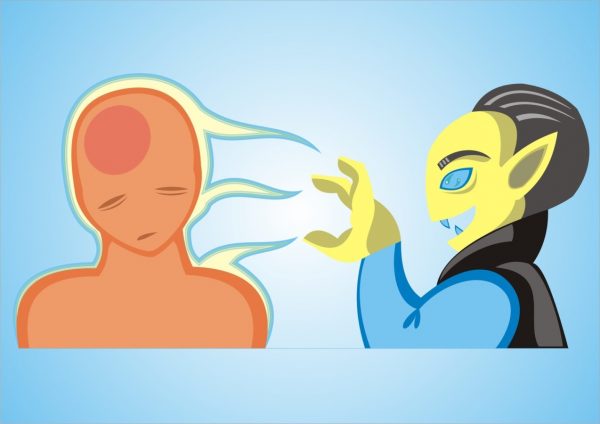Being open and honest with other people, even strangers, isn’t always easy. I’ve had a particularly difficult time with this. It takes so much awareness and courage because so many “what ifs” are involved. What if they judge us? Will we be ousted from the pack? Will we be less worthy? All of these questions are symptoms of the uncertainty that roil beneath the surface.
Me: Okay. Let’s talk about emotional honesty with other people. This has been a problem for me. I’m very emotionally honest with myself, but it’s hard for me to be so with others if I think it’ll hurt their feelings. I guess this is because I’ve had my own feelings hurt a lot by my parents. I also don’t want all the conflict and drama that was such a big part of my childhood, and I’m afraid the person might judge me. I’ve been trained by my parents to seek approval. I did whatever would win that approval just to survive. How can I become emotionally honest with other people?
Erik sends this image where he’s making himself enormous, and I’m my normal size. He’s hugging me kind of like a big gorilla would pull their baby up to their chest.
Me: Aww.
Erik: I just wanna hugga, hugga, hug you. I know it’s hard when we’re taught these emotional rules when we were little, whether it was out of safety, shame or whatever, and nobody in our environment is there to say, “Hey, that doesn’t work. Why are you doing that?” So you keep that pattern. Then we have these sayings like, “If you can’t say anything nice, don’t say anything at all.”
Me: Exactly.
Erik: That does come into play sometimes when opinion is not valuable because they don’t need it.
Me (chuckling): As a general rule, I’m against unsolicited advice!
Erik: But sometimes your opinion does matter. Even if it’s your emotional truth, to everybody else, the only way they can take it home to their hearts is to see it as an opinion. That’s the same with everyone else. When they’re giving you something, they’re coming from their emotional truth, but the only way you can process it is as an opinion.
Me: I guess everyone has their own different emotional truth. That’s why they’re opinions instead of absolutes.
Erik: Ka-ding, ka-ding, ka-ding! Slam dunk, Mom!
Me: All right. Finally got two points.
Erik: When we think that our emotional truth should be everybody else’s, then we have to sit down with our egos and say, “Listen, even though we live in an individualistic world, we’re not separated from anyone, but as long as you can speak to the highest degree of honesty at all times, you’ll have no inner war.” That’s the ultimate goal. War between you and somebody else, meaning you don’t want them to judge you, or you don’t want to be harsh to them, all that shit is made up. It’s miscommunication. Now, a lot of people think that conflict is needed to get to a better place, which I call bullshit, and others avoid conflict because they hate how it feels. They shut down. That’s passive bullshit. (In a loud pompous voice) IN MY OPINION, I find it best to always be as honest as you can, and then take the time to teach, not explain. When you explain, you’re defending yourself. When you teach, there’s no confrontation or avoidance.
Me: But if you play the role of the teacher, people will feel that you’re superior. Are you talking about a different way of teaching?
Erik: Yes I am. Another two points for you.
Me (laughing): All right! Four to a gazillion.
Erik: When I say you teach someone, it doesn’t mean you do that whole, “Well I know better” bullshit. I just didn’t want to use “explaining” because, with explanations, not only are you defending your truth, you’re using all these extra fucking words. (In a funny, defensive voice) “Well, what I really meant was duh, duh, duh.” It doesn’t come across right. But if you say, “Hey. I said it that way, and it came from this place of blah, blah, blah. How did you hear it?” Then they tell you, and you’re like, “That’s not exactly the way I was delivering it. I’m sorry if I presented it that way. I wanted you to understand it this way.” The English language is really aggressive. It just sucks, and, culturally, people have learned different inflections and tones. Even if you’re listening to the cadence and the tone of the words, you can get it totally wrong.
Me: Especially with emails and texts. You can’t include the emotional intent.
Erik: Yeah. So if they start defending themselves, that’s when you go, “Wait. Before we go there, can you explain what you heard? What did you understand from me?” If they got it “wrong,” just say, “That’s not what I meant.” If they’re not giving you the time of day or are reacting badly, guess what, not your responsibility. You can’t be responsible for other people’s reactions and for teaching them what you were teaching because you knew that if they just got it, it would be all right. If the person wanted to blow up his entire world with you as the witness or if they judge your ass, you have to let ‘em. You’re not in charge of them. You’re not responsible for them. If you find out that they went behind your back and dissed you to other people, you have to have the balls to go, “Wow. I was extremely disappointed when I heard all your judgments against me. I really hoped you understood me.” It’s not about personally insulting them; it’s about telling them how you feel about it and where you wanted it to go. Everyone should read, Nonviolent Communication. It helps you become better prepared to be emotionally honest with others.
Me: I’ve read it. Great book in situations of conflict. Now, sometimes I’m afraid to lose that person if I’m totally honest with them. Maybe I value their friendship, and I don’t want to alienate them and lose them forever.
Erik: Then, Mom, you have every right to say that to them. You can say, “I’m really scared that what I’m about to share with you will alienate you, and that’s not the outcome I want, but I can no longer pretend or behave this way.” It’s okay to teach emotions, but not to bury them. In this case, some people will fucking freak out because they immediately think they have some responsibility over you and everything you’re sharing. Like all of a sudden, it’s all on them. That’s a crock of shit. When you’re sharing, you’re not handing over your shit for somebody else to clean it up. You’re seriously saying, “Hey. I’m responsible for myself and, in this relationship, I’m putting my chips in. I’m not asking for you to mend me or put a Band-Aid on me or run away.” Emotional honesty is what our culture’s crying for.
Erik makes boo-hoo sounds.
I can’t help but laugh.



